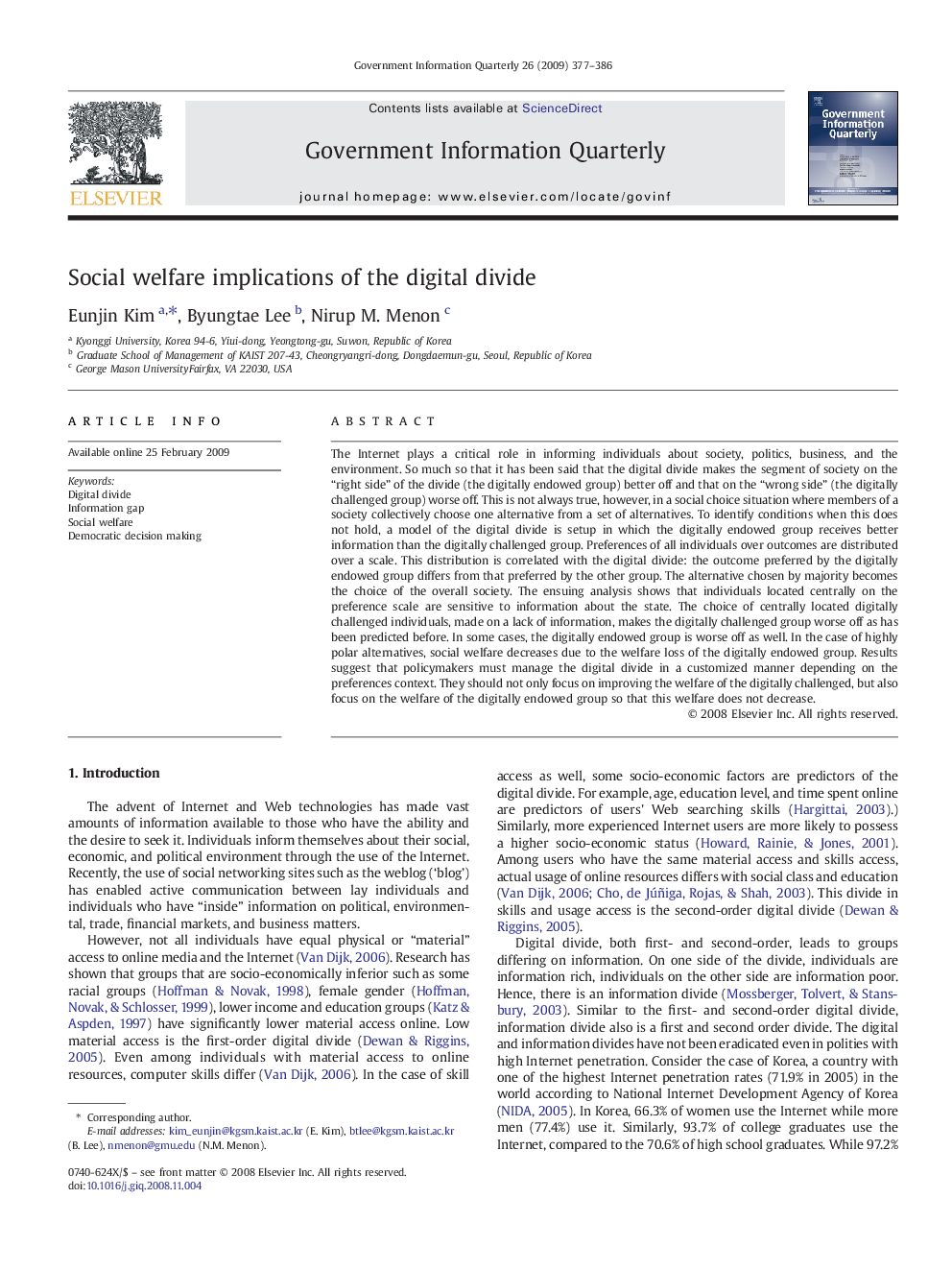| کد مقاله | کد نشریه | سال انتشار | مقاله انگلیسی | نسخه تمام متن |
|---|---|---|---|---|
| 1024956 | 941776 | 2009 | 10 صفحه PDF | دانلود رایگان |

The Internet plays a critical role in informing individuals about society, politics, business, and the environment. So much so that it has been said that the digital divide makes the segment of society on the “right side” of the divide (the digitally endowed group) better off and that on the “wrong side” (the digitally challenged group) worse off. This is not always true, however, in a social choice situation where members of a society collectively choose one alternative from a set of alternatives. To identify conditions when this does not hold, a model of the digital divide is setup in which the digitally endowed group receives better information than the digitally challenged group. Preferences of all individuals over outcomes are distributed over a scale. This distribution is correlated with the digital divide: the outcome preferred by the digitally endowed group differs from that preferred by the other group. The alternative chosen by majority becomes the choice of the overall society. The ensuing analysis shows that individuals located centrally on the preference scale are sensitive to information about the state. The choice of centrally located digitally challenged individuals, made on a lack of information, makes the digitally challenged group worse off as has been predicted before. In some cases, the digitally endowed group is worse off as well. In the case of highly polar alternatives, social welfare decreases due to the welfare loss of the digitally endowed group. Results suggest that policymakers must manage the digital divide in a customized manner depending on the preferences context. They should not only focus on improving the welfare of the digitally challenged, but also focus on the welfare of the digitally endowed group so that this welfare does not decrease.
Journal: Government Information Quarterly - Volume 26, Issue 2, April 2009, Pages 377–386